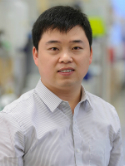The potential of organoids in urological cancer research Journal Article
| Authors: | Wang, S.; Gao, D.; Chen, Y. |
| Article Title: | The potential of organoids in urological cancer research |
| Abstract: | Technical advances in the development of organoid systems enable cell lines, primary adult cells, or stem or progenitor cells to develop into diverse, multicellular entities, which can self-renew, self-organize, and differentiate. These 3D organoid cultures have proven to be of value in increasing our understanding of the biology of disease and offer the potential of regenerative and genetic therapies. The successful application of 3D organoids derived from adult tissue into urological cancer research can further our understanding of these diseases and could also provide preclinical cancer models to realize the precision medicine paradigm by therapeutic screening of individual patient samples ex vivo. Kidney organoids derived from induced pluripotent stem cells provide personalized biomarkers, which can be correlated with genetic and clinical information. Organoid models can also improve our comprehension of aspects of particular diseases; for example, in prostate cancer, 3D organoids can aid in the identification of tumour-initiating cells from an epithelial cell lineage. Furthermore, kidney organoid differentiation from human pluripotent stem cells enables gene editing to model disease in kidney tubular epithelial cells. State-of-the-art human organoid cultures have potential as tools in basic and clinical research in renal, bladder, and prostatic diseases. © 2017 Macmillan Publishers Limited, part of Springer Nature. All rights reserved. |
| Journal Title: | Nature Reviews Urology |
| Volume: | 14 |
| Issue: | 7 |
| ISSN: | 1759-4812 |
| Publisher: | Nature Publishing Group |
| Date Published: | 2017-07-01 |
| Start Page: | 401 |
| End Page: | 414 |
| Language: | English |
| DOI: | 10.1038/nrurol.2017.65 |
| PROVIDER: | scopus |
| PUBMED: | 28534535 |
| PMCID: | PMC5558053 |
| DOI/URL: | |
| Notes: | Review -- Export Date: 2 August 2017 -- Source: Scopus |
Altmetric
Citation Impact
BMJ Impact Analytics
Related MSK Work






